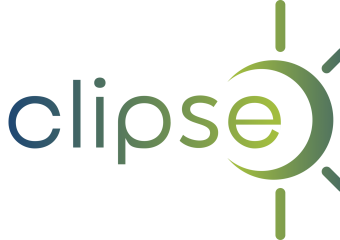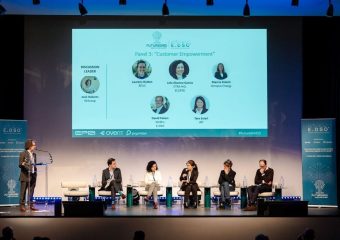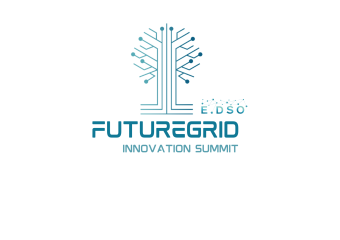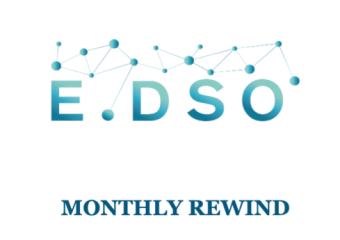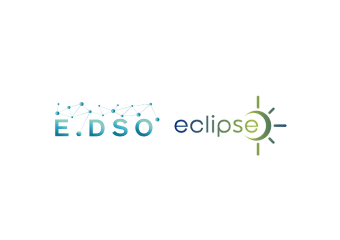On 30 November, E.DSO Stakeholder & Innovation Council (SIC) wrapped its fifth edition in the framework of ENLIT (hybrid format). The leaders of the distribution sector and energy associations representing solar-PV, customers, and manufacturers, together with regulators and standardisation associations kicked off the event with a passionate call to address the triple crisis – energy, economic and climate – and setting out approaches and solutions as to how to deal with this.
The theme of this year edition “Seizing the change, get ready-for-action” signaled how essential it is to accelerate the actions for a more sustainable future for all in the face of rapid transformation. The half day event shed light into prospects of a power grid that reduces the emission of greenhouse gases, lowers the total cost of energy generation, adds flexibility and reliability to European’s power generation system, and delivers social and economic benefits to customers.
Joao Torres, the Chair of the E.DSO Stakeholder & Innovation Council welcomed the speakers and audience by conveying the message “In a time of full transformation, we must have complete clarity on our journey and destination. The current energy crisis is only the tip of the iceberg. He continued: “It is vital and mandatory for us as all as key players in the energy field, to deploy all the technologies that are already available now to accelerate electrification, digitalisation, and sustainability of the future.
Christian Buchel, Chair of E.DSO delivered the opening speech of the event “There is one thing that best describes the mood in the electricity sector right now, and that is “urgency”. There are huge climate goals for Europe in the years ahead: a Net Zero electricity grid by 2035 and a Net Zero economy by 2050. We are inspired by this sense of urgency. But it urges a question: what we can do, as an industry, to meet these challenges? The answer is simple: Everything”
In his keynote speech Wolfgang Niedziella, President of CENELEC said “Today’s event is very timely. At all levels, we find ourselves in what economist Adam Tooze on the Financial Times has described as a “polycrisis”: a moment of many disparate shocks tangled together, to overwhelming effects. In this context, today’s meeting, and more generally the work of E.DSO, are strategic. I say this based on one strong conviction – one on which I think many of you will agree with me: that energy is at the crossroads of all potential solutions.”
A few noteworthy moments at the Council included thought-provoking discussion on achieving the vision of a green and sustainable future. One of the big players is the solar industry, the fastest-growing business models in renewable energy because of the benefits it brings for customers, the grid, and society-at-large. Roberto Zangrandi, E.DSO Secretary General, declared that he is thrilled to continue the partnership with Solar Power Europe, a partnership which has been materialized last week in a joint manifesto.
Another remarkable issue was the discussion about customers as the cornerstone of the future dercarbonisation efforts. Customers will have to make complex and often expensive decisions in rapidly evolving markets and will be presented with new opportunities for more proactive engagement in energy services.
Although they often go unobserved, standards are an important part of almost every technology we use. In the context of the energy transition, standards can appear as important tools guiding technological development: they can be indicative that new, green technologies can achieve what they promise, while complying with safety requirements.
E.DSO thanks all presenters and attendees for making this year Council a success.



